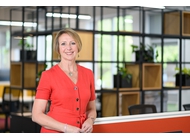Cambridge Consultants celebrates 50 years of innovation
- Date 23 Feb 2010
Cambridge Consultants, the company described as “those experts of disruptive technologies” by the Financial Times, celebrates its 50th year in 2010. Established by three Cambridge University graduates in 1960, the company has grown into a world leading technology product development firm, employing over 300 engineers, technologists and scientists at offices in both Cambridge, UK and Boston, USA.
The company’s work for both large multinationals and early stage start ups can be seen all around us, from the round tea bag you use to make your morning beverage, to the ground-to-air radio system used to control air traffic in US airspace; and from the Bluetooth chip in your mobile phone, to the ultra low-cost optoelectronics in one of the world’s most successful pregnancy testing kits. Its effect can also be seen in the wealth created by the 20 businesses it has spun out since 1975, including CSR, the world’s largest manufacturer of Bluetooth chips, and Xaar, Domino and Inca Digital, three of the world’s leading companies, founded on ink jet printing technology originally conceived at Cambridge Consultants. Combined, these four spin outs alone employ 3,500 people and generated more than $1billion in revenue in 2008.
“1960 was a time of great social, cultural and technological change,” commented Dr Brian Moon, CEO of Cambridge Consultants. “JFK had won the US presidency and thrown down a challenge to his country’s scientists to put a man on the moon before the end of the decade. The effect of this challenge was felt around the world, and almost certainly inspired our founders to create a business that aimed initially to provide British industry with ready access to a new breed of highly qualified, forward-thinking, recently graduated technologists.”
Cambridge Consultants was forged in the “white heat” of Harold Wilson’s technological revolution, and has remained at the leading-edge of technology innovation to this day. Although best known as the key driving force behind the creation of ‘Silicon Fen’, Europe’s leading high-technology cluster, Cambridge Consultants’ reach now goes well beyond its roots. Today it is an integral part of the Altran Group, an 18,000 strong global engineering firm with a presence in 26 countries and a turnover of more than €1.6bn. Indeed, in recognition of the company’s global impact, it was awarded the 2009 Queen’s Award for International Trade. With about 60% of its business coming from the US and Asia, Cambridge Consultants has matured into a truly global business, developing more inhalers than any pharmaceutical company, leading the way for smart energy management, and housing one of the world’s largest independent wireless development teams.
Dr Moon continues: “What we now do is help our clients achieve competitive advantage very quickly through the application of novel technology, or indeed, the novel application of existing technology. Today, this work is helping many of our clients gain market share as the economy recovers from the effects of the global recession. Whatever market our clients are in, from medical diagnostics to satellite communications, this work requires our teams to look ahead, and so that is very much the theme of our celebrations and activity this year.”
To launch the company’s 50th anniversary celebrations, Cambridge Consultants looked – as usual – to the future, asking a class of 10 year olds at the Milton Road Primary School in Cambridge, UK to write a diary entry for a typical day in 2060, when they would be 60 years old. The children were asked to focus particularly on the part that technology may play in their lives in fifty years time. Amongst the nuclear powered hover-cars, robo-doctors dispensing spray-able medicines and holographic phone displays was the constant theme of climate change which, in many of the diary entries, had yet to be fully solved.
“We have come very far in the last fifty years and should be very proud of our achievements”, concludes Dr Moon. “But I, like the children in our competition, suspect that we have more challenging times ahead of us. As we seek technological solutions to some of the world’s most pressing and urgent needs, the watchwords will be efficiency, simplicity and renewability. But one thing we can be sure of is that the world is not running out of technology.”



